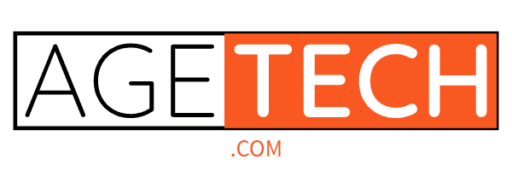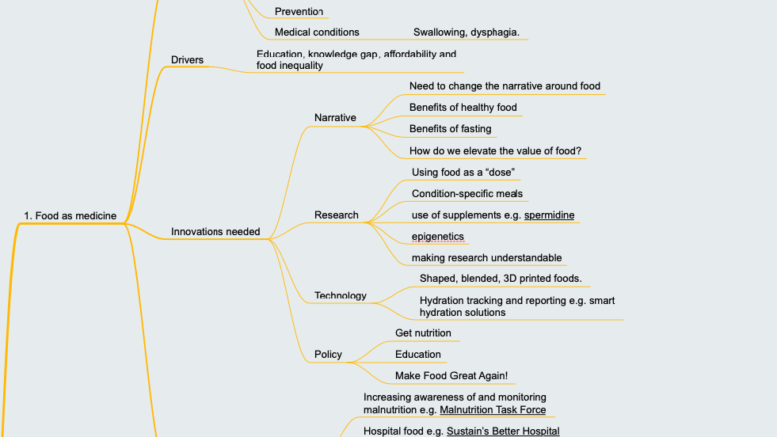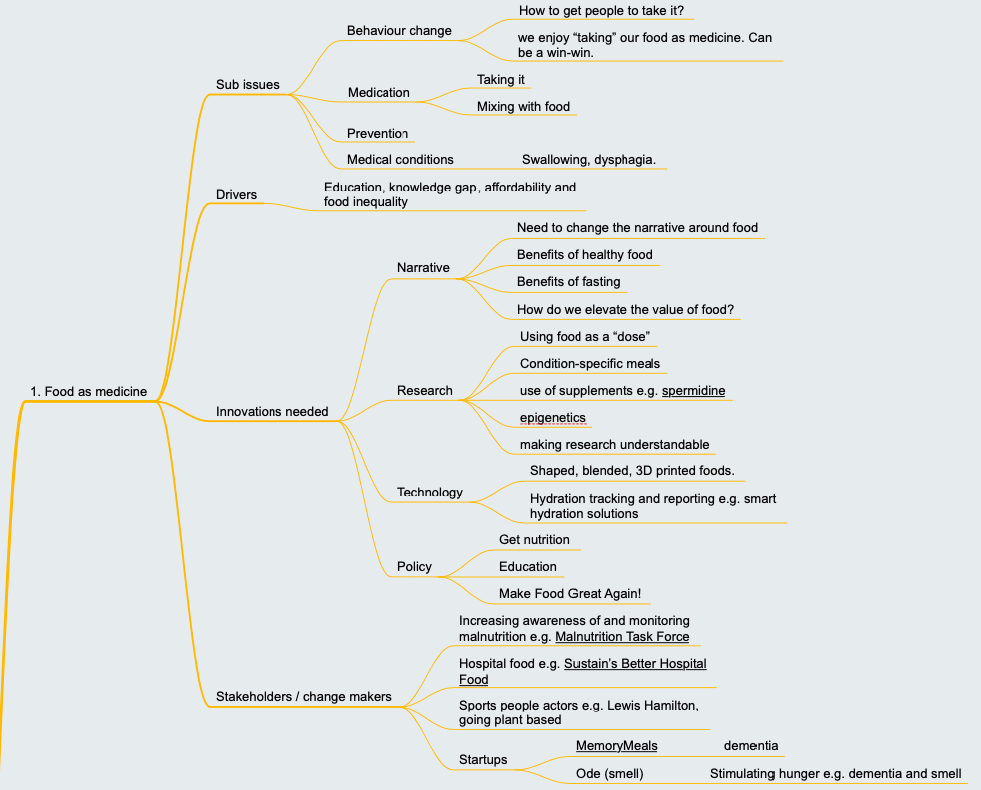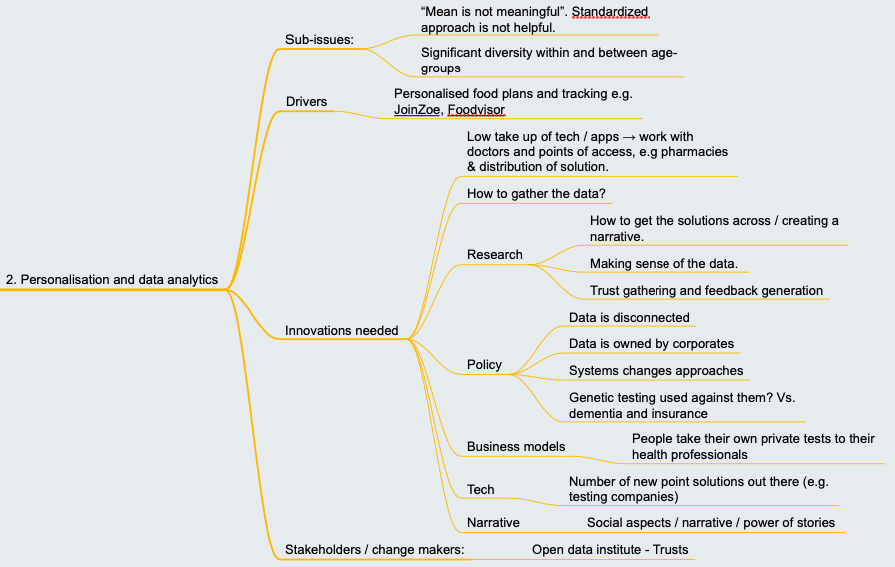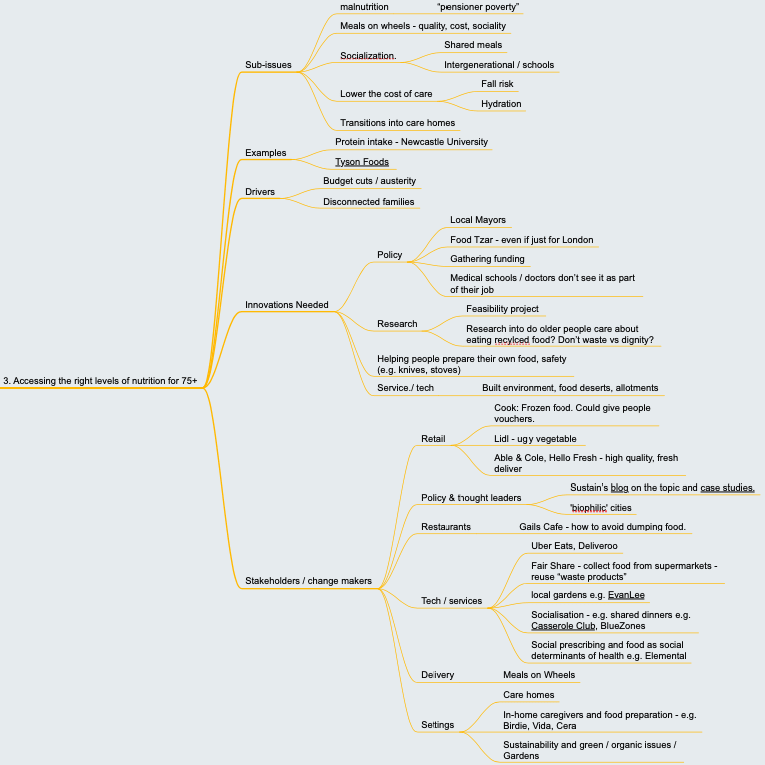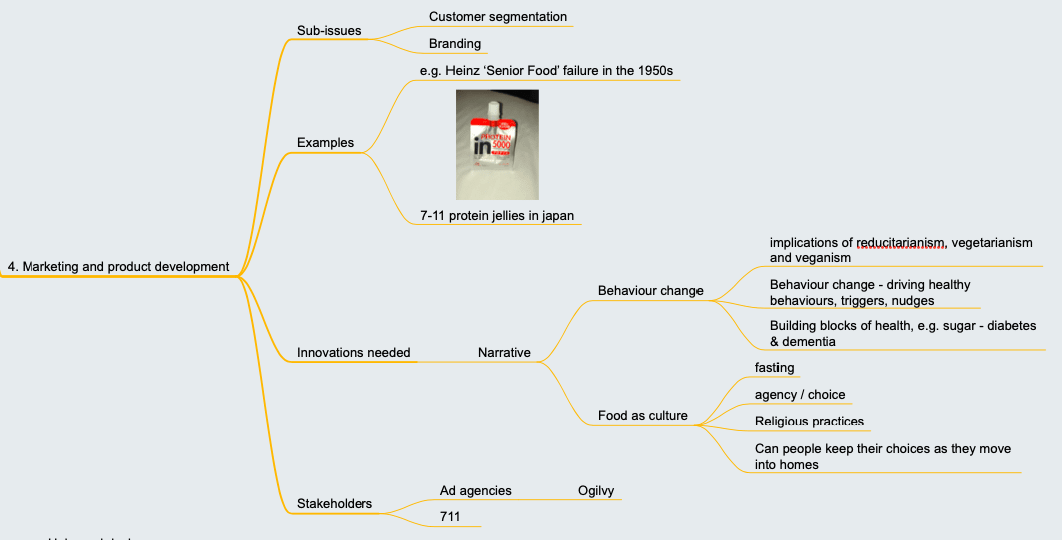
Summary: Aging2.0 London, with the support of Ageing Research at King’s (ARK), hosted the first of the The Aging2.0 Collective Intelligence Workshops on December 16, 2019. This event brought together 20 people from a variety of backgrounds – academics, startups, consumer advocates, policy makers and corporates – to discuss a shared interest in innovating food & nutrition to improve the lives of older people. The goal was to identify the key “levers” – the issues and sub-issues that would help us make the biggest difference in the most efficient way, and add these to The Collective to be used by others, and kickoff a global conversation around innovation in the space. The topic of “food and nutrition” was chosen as a sub-topic to the Daily Living and Lifestyle Grand Challenge; the topic is key for quality of life for people in all settings and there is a tremendous amount of innovation going on in the space right now.
Attendees: We had a broad cross-section of attendees, of particular note some promising startups (personalised nutrition company Zoe, nutrigenomics startup Lifecode Gx, digital therapeutics company, Sharp TX and music startup Memory Tracks) and a strong academic presence from our hosts Ageing Research at Kings College London, together with non-profits, corporates and service providers.
Results: We started off with ‘stimulus’ presentations and then brainstormed four topics that the group felt were most impactful: Food as medicine, Personalisation and data analytics, Accessing the right levels of nutrition for 75+ and Marketing and Product development. We fleshed these out following the format ‘sub issues’, ‘drivers’, ‘innovations needed’ and ‘stakeholders. (Below are the topic maps – happy to share text / bullet versions) A couple of striking things for me, in addition to useful additions of new names for The Collective: Personalisation seems to be the killer app here – delivering a litany of benefits but being hard to accomplish; changing the narrative featured strongly as an innovation theme on most issues, requiring us to work with advertising & comms folks; and the need for data and interoperability standards / measures was also frequently cited.
Attendees found it productive: The event itself proved popular with attendees (and not just because of the festive mince pies and bubbly that was a reward for the hard work). About half the attendees submitted the NPS survey for an average score of 9.3 / 10 and comments included: “Great group of people from outside my normal bubble”, “An organisation with a great purpose, growing ‘market’, very well run meeting. Thank you”, “Great networking event, excellent science with expert academic & industry perspectives and a splendid venue. Thank you!”.
Next Steps: We’re updating The Collective with these findings and then encouraging other Chapters around the world to take the outcomes of this event as input to theirs, and iterate it to develop more topics and go deeper. And so on, until we build an effective global innovation agenda on all of our topics. We will also start to involved our corporate partners more to set the agenda and topics and share useful data about where they’ve got. The Tel Aviv Chapter has already volunteered to do the next one on Food & Nutrition (so that would be ‘FN-02’). Work for us at HQ now is to take this input an articulate some bold, measurable moonshots in all these area and then start to track progress we’re making on achieving them. We have our work cut out – this is a multi-year process, but it’s good to get the ball rolling.
About the Author
Stephen Johnston MBA is a co-founder of Aging2.0 a global innovation platform for aging and senior care, founder of Fordcastle, an innovation consultancy and a member of the Future Agenda, the world’s largest open foresight initiative. Stephen serves on the board of Music and Memory a New York 501c3 nonprofit focused on improving the quality of life for older people, He is co-author of Growth Champions (Wiley, 2012), a book about sustainable corporate growth. He has an MA in Economics from Cambridge University and an MBA from Harvard Business School where he was a Fulbright Scholar.
